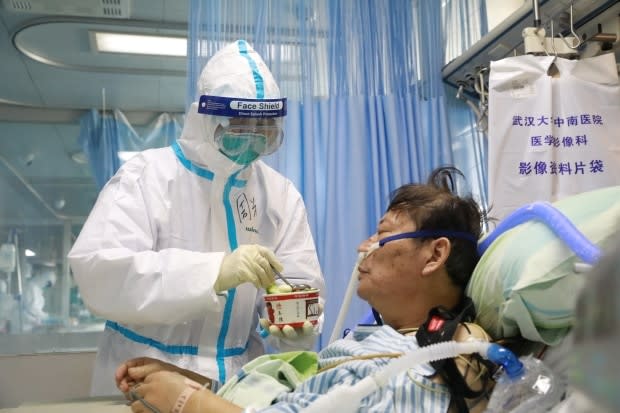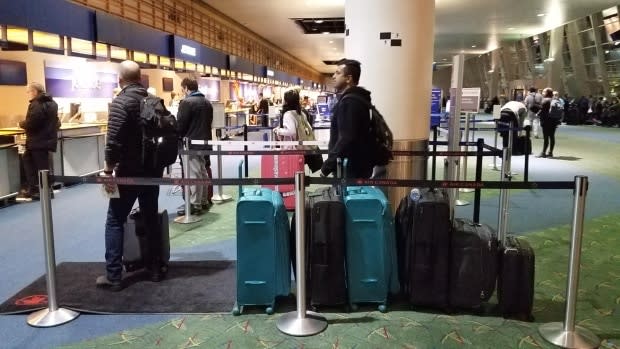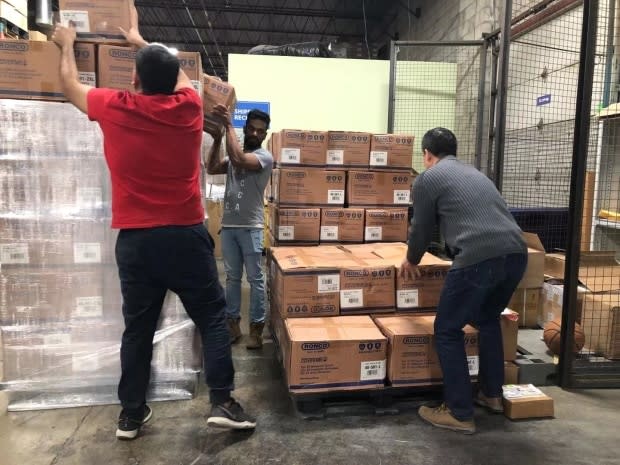Medical supply shortage leaves groups scrambling in bid to help Chinese hospitals
Chinese Canadian organizations have raised hundreds of thousands of dollars across the country to help medical staff treating patients with the novel coronavirus in China, but they're scrambling to find medical supplies they can send.
Their supporters began raising funds as soon as news broke that Chinese hospitals in the affected region of Hubei province were running out of basic protective supplies — including masks, gloves, protective body suits and goggles.
Our experience and our reality has been like hunting for water in a desert on a time limit. - Al Lo, Oasis Global Partners

But all those items are in limited supply.
"It's very frustrating," said Andi Shi with the Chinese Professionals Association of Canada (CPAC), one of the largest groups to raise donations for supplies. He said the organization could easily raise $500,000, but has stopped accepting large donations.
To date it's only managed to find $60,000 worth of supplies.
Turning away donations
"There are people who want to give us money, but we can't accept it because we can't guarantee that we can find enough supplies," he said, adding that a Boston organization, frustrated in their own search, offered CPAC the $100,000 it had raised to date, but CPAC had to turn them down.
CPAC did manage to get a shipment of protective body suits to two hospitals in Wuhan, China, last week.
This morning, it sent out another shipment of gloves, goggles, medical masks and more suits. They are expected to arrive in a few days to a hospital in Wuhan, but that could be the last for a while, he said.

'They will not sell to us'
Shi said suppliers have warned the group they could not fill any more orders.
"We are told that they will not sell to us," said Shi. "They want to keep the inventory for Canadian hospitals."
A spokesperson for one supplier, Medical Pharmacies Group, said each operation makes independent decisions about filling large orders.
"Everyone is managing inventories for their own needs in case of urgent requirements," wrote Petra Storm in an email, "There is no overstock."
Shi wonders whether a formal inventory should be taken to make sure Canadian suppliers are doing all they can to help China control what is now feared to be a global epidemic.

'We gave up on Canada'
Al Lo, the Canadian CEO and founder of the equity firm Oasis Global Partners, said he stopped looking for supplies in Canada at the beginning of the month.
"We gave up on Canada given the difficulty we had even sourcing quantities in the U.S., with a market 10 times larger," said Lo. "Our experience and our reality has been like hunting for water in a desert on a time limit."
Lo has turned the business of Oasis to sourcing medical supplies full-time because of the crisis.

He said the supply problem comes with high stakes: "I would definitely say it's costing lives."
Like Shi, Lo said his company has focused on helping medical staff in China, where hospitals in the affected area are reporting having to improvise without effective medical grade supplies.
Should Canada stockpile?
On Friday, Lo was in Portland packing up Oasis's fourth shipment, to be escorted by an employee using Air Canada, en route eventually to Shenzhen, China, on Sunday.
Lo said the experience has been eye-opening about the vulnerability of the medical supply chain, and wonders aloud whether Canada and the U.S. are prepared if such an outbreak happened on this continent.

"Everyone today, even in the medical field, they expect things to work like Amazon. They go to their computers, they place an order online and the supplies arrive within days," said Lo, "But this current coronavirus of 2019-2020 is showing that the market will break down."
He also suggests that since so much production for medical supplies takes place in China, it could leave Canada vulnerable if it had its own emergency. Perhaps this country should consider formally assessing how much it should stockpile, he says.


